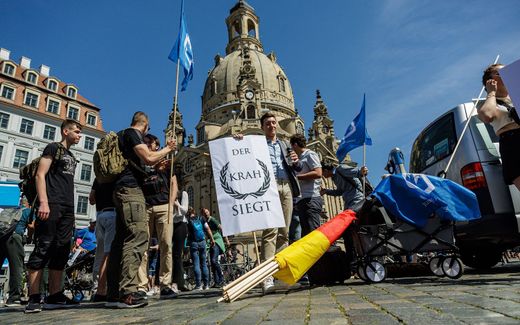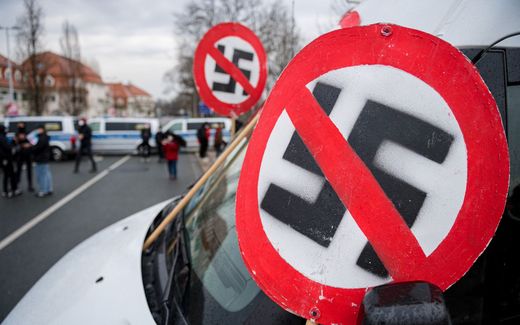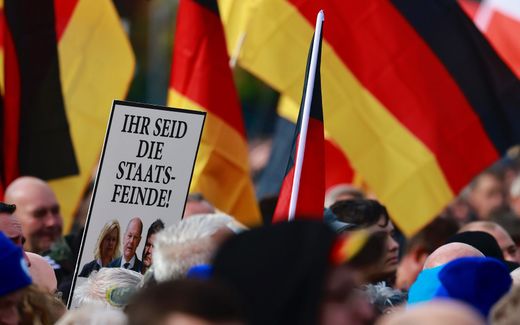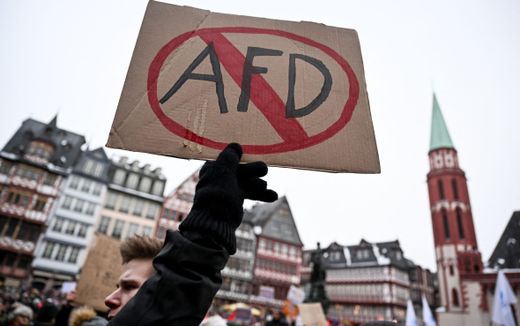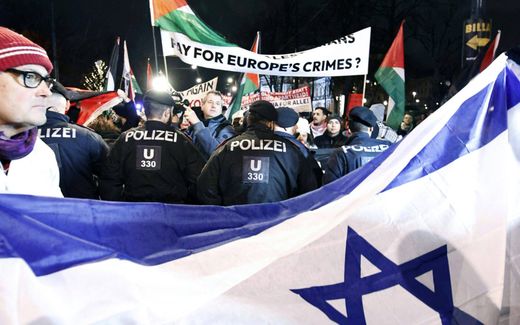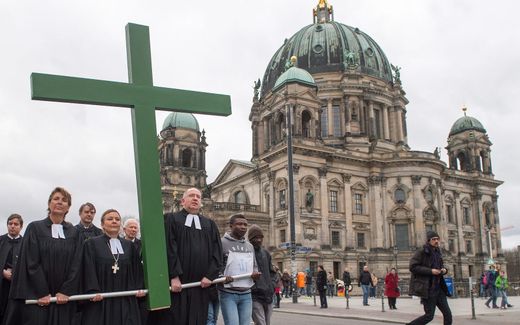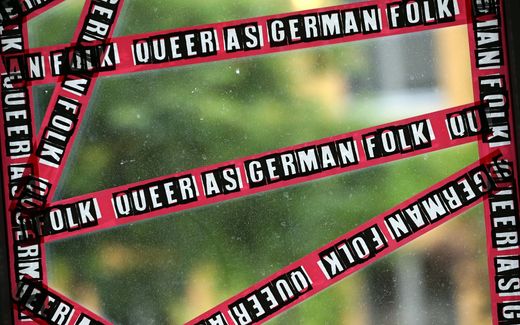Column from Germany: Why Christians fall for the AfD narrative
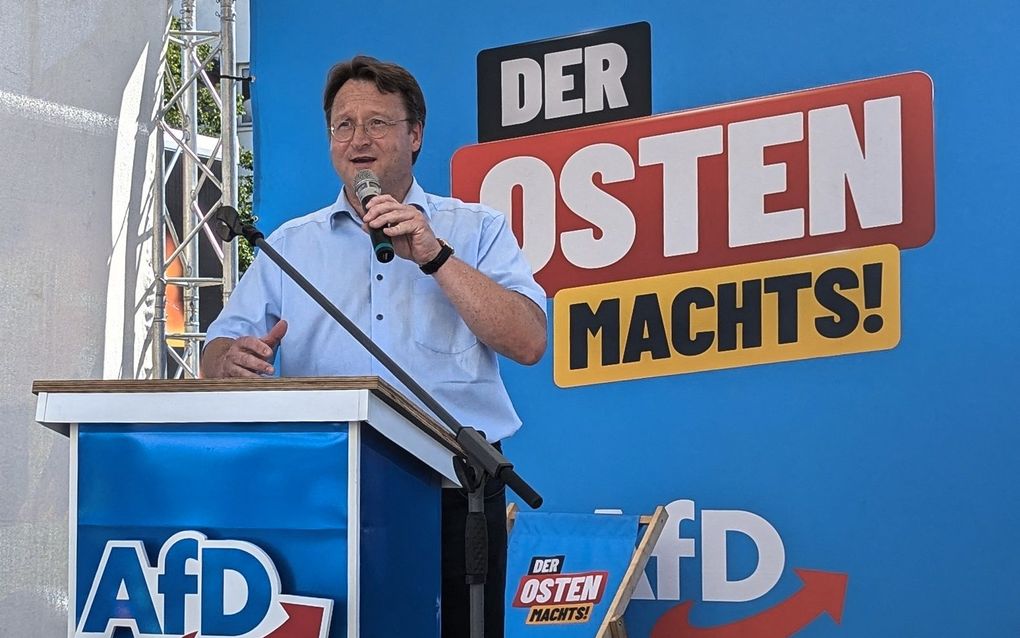
Robert Sesselmann of the far-right Alternative for Germany (AfD) party and and first district administrator in Germany of the AfD speaks during a campaign event on August 11, 2024 in Sonneberg, ahead of the September 1, 2024 regional state elections in Thuringia. Photo AFP, Clement Kasser
Christian Life
In Germany, elections are coming up. Many are worried about the far-right AfD party that will get a good deal of the votes, according to the polls. Christians are allured by the narrative of the party too, columnist Wolfgang notices.
Regional parliamentary elections will be held on September 1 in the south-eastern German states of Saxony and Thuringia and three weeks later, on September 22, in Brandenburg, the large territorial state surrounding the capital Berlin.
In the other 13 federal states, people are looking forward to these elections with excitement – and with great concern. For the first time, it looks like right-wing extremists and other populists will win large majorities.
If the opinion polls are correct, the AfD will be by far the strongest party in Thuringia with just under 30 per cent, ahead of the CDU, which usually leads in Germany, with only 22 per cent. The party currently in power there, "The Left", will probably only receive 15 per cent. In Saxony, the polls also put the AfD at 30 per cent or more - it could perhaps overtake the CDU, the strongest and governing party there to date.
Saxony and Thuringia were once considered to have a strong Protestant influence – it was at Wartburg Castle in Thuringia that Martin Luther began translating the New Testament in 1521, during his imprisonment. And Saxony, especially the "Erzgebirge ", was long regarded as part of Germany's biblebelt. The churches here were also influential during the months of the revolution against the communist regime in 1989/1990.
Migration
But this has not been the case for a long time. The flight and migration of many people to West Germany has greatly reduced the number of Christians there. The general alienation of people from the big churches has done the rest.
Nevertheless, many are asking themselves: Why is the radical right-wing, xenophobic AfD so strong there?
It is remarkable that the AfD uses Christian symbols and rhetoric to legitimise its radical right-wing goals, which are often blatantly at odds with the Christian principles of charity and human dignity.
This appropriation and reinterpretation of Christian values by the party is criticised by church representatives as blasphemy, as it distorts the fundamental values of Christianity. Both the Protestant Church in Germany and the Catholic Church have taken a very clear stance against the AfD: The party is not electable for Christians, as the party represents positions that contradict the basic values of Christianity, especially with regard to human dignity and diversity.
Rejection
However, despite the clear rejection of the AfD by church institutions, there are also voices within the Christian community in eastern Germany that support the AfD. Some Christians, especially from free-church congregations, feel that the AfD's conservative positions on social and cultural issues, in particular its opposition to abortion and the promotion of traditional family structures, appeal to them. The AfD is also supported by some Christians who see the party as a defender of Christian values against the influence of other religions, especially Islam.
There are even Protestant pastors who speak out in favour of the AfD or stand as candidates for it. One of the well-known ones is Martin Michaelis from Quedlinburg. He was elected to the town council as a non-party member on the AfD list, which is why the church has banned him from preaching.
Atheism
East Germany has a special historical and social dynamic that influences the relationship between Christians and the AfD. Although the region is historically characterised by Luther and the church, it was also shaped by atheist, totalitarian regimes for 55 years in the recent past: first by National Socialism from 1933 and then by communism from 1945 to 1989.
Both dictatorships suppressed and fought against the church. This long period of state atheism led to a much weaker commitment to the church (compared to West Germany). Economic insecurity and social fears also play a role, which are addressed by the AfD and resonate with some people.
Second, a completely new party is also playing a major role in the upcoming regional elections: the Sara Wagenknecht Alliance (BSW). This new party is left-wing in terms of economic policy, conservative in terms of social policy, critical of migration, EU-sceptical, cautious on climate policy and Russia-friendly in terms of foreign policy. With this combination of positions, it fills a previously unoccupied niche in the German party system and looks set to receive between 13 and 18 per cent of the vote.
In all likelihood, the elections in eastern Germany will lead to a political earthquake. Some Christians will probably play a part in this.
Related Articles


